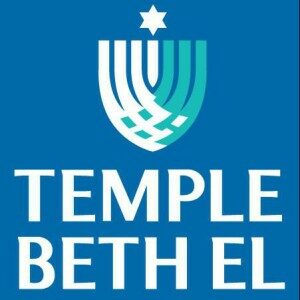Lessons from TBE’s Action on Affordable Housing That Can Inspire Us Today
In April 2010, the Temple Beth El Board passed a resolution on affordable housing and homelessness. So what, you might say – resolutions are just words. Actually, as a direct result of our stance at TBE, more than 100 homeless families are now housed and eventually 80 to 100 additional families will be housed – every year.
TBE’s board resolution evolved from conversations among congregants, a process analogous to the Listening Circles we’re holding now (more on that in a moment).
When the resolution passed, one in six TBE congregants were assisting the homeless with emergency needs through Room In The Inn, Operation Snowflake, and other temple programs that continue today. Yet neighborhoods across Charlotte had repeatedly rejected new construction of affordable housing that would prevent homelessness.
Once the resolution became public, lay leaders from Myers Park congregations invited TBE to join their monthly breakfast meetings at Phil’s Deli to pool collective efforts on this issue. The group developed a creative idea to subsidize rents at existing market-rate apartments scattered throughout the city. This tactic would avoid neighborhood protests and eliminate construction timelines. The group envisioned a public/private endowment, using the income to fund rental subsidies lasting up to 24 months.
From Bagels and Lox to New Affordable Housing
The Phil’s Deli coalition successfully shopped the idea – now called A Way Home — to the Foundation For The Carolinas in 2012. Charlotte’s City Council supported the concept the following year with a $10 million endowment pledge. The innovative plan quickly drew financial support of nearly $10 million more from corporate and private donors, congregations, and FFTC itself. With some support from Mecklenburg County, agencies receiving A Way Home grants provided case workers to help families increase their wages and address the barriers that led to homelessness.
It’s an idea that works. Rental subsidies are ending for the first pilot group of A Way Home participants, and the majority remain housed and working. Nearly half renewed their lease in their same apartment without A Way Home funding, establishing three years of history as stable tenants and providing consistent schools and classmates for their children.
What’s the price for this powerful transition from homelessness to stability? A Way Home costs only $9,100 per family in rental subsidies – less than $3,000 per person.
The program provides other benefits, too. The recent Charlotte-Mecklenburg Opportunity Task Force report identified more affordable housing, desegregation, and access to social capital as critical components to healing our city. All are possible with A Way Home.
The 2010 temple resolution on affordable housing led to real change in the root causes of homelessness in Charlotte.
What Calls Us Now: Racial Inequity
Temple Beth El is now exploring taking a congregational position again, this time on the challenge of racial inequity in our community. We have been conducting Listening Circles to talk about our experiences of race so that our congregational path represents the full spectrum of congregant viewpoints. There are several more opportunities to participate in February, including Sunday afternoon and weeknight sessions.
When we take a public stand in our community as a congregation, we can make a difference. Sign up here for one of these ninety-minute discussions to guide TBE’s work on racial inequity, so that we can again drive positive change in Charlotte.
Judy Seldin-Cohen serves on the Tzedek Council and the community organizing group at TBE, and she is now the board chair of A Way Home. She has previously served on the temple board and chaired both the affordable housing committee and the social justice & action committee.





